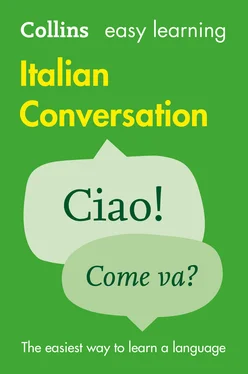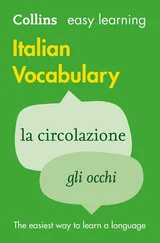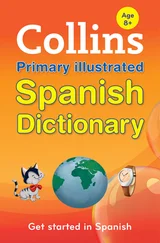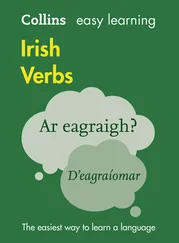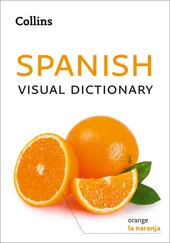1 ...7 8 9 11 12 13 ...18 If you want to say that you have to do something in Italian, such as buy a ticket, catch a train and so on, you use devo( I have to) or dovrei( I ought to ) followed by the infinitive. These are from the verb dovere( to have to ). For more information on dovere, see here.
| Domani devocomprare il biglietto per il traghetto. |
I have tobuy my ticket for the ferry tomorrow. |
| Devoprima pr e ndere il treno per Parma. |
I have toget the train to Parma first. |
| Devoandare a pr e ndere la m a cchina entro le tre. |
I have topick up the car before three. |
| Devepresentare la patente. |
You have toshow your driving licence. |
| Dovreifare ancora benzina. |
I ought toget some more petrol. |
| Dovreiconfermare il volo. |
I ought toconfirm my flight. |
| Dovremmo e ssere in stazione alle sette. |
We ought tobe at the station at seven. |
Another way of saying what you must do is to use bisogna che( it is necessary that ) followed by the subjunctive. For more information about the subjunctive, see here.
| Adesso bisognaproprio chevada in stazione. |
I really mustgo to the station now. |
| Bisogna chelo chiamiamo domani mattina. |
We mustcall him tomorrow morning. |
| Bisogna cheritiri i biglietti in agenzia. |
I mustpick up the tickets from the travel agent’s. |
SAYING WHAT YOU WANT TO DO
When you are travelling, you may want to say what you would like to do in Italian. You can use vorrei( I’d like ) or voglio( I want ) with the infinitive. They both come from the verb volere( to want ). For more information on volere, see here.
| Voglioandare a Torino. |
I want togo to Turin. |
| Vogliosc e ndere a Verona. |
I want toget off at Verona. |
| Vogliocambiare il biglietto. |
I want tochange my ticket. |
| Vogliamopartire domani mattina. |
We want toleave tomorrow morning. |
| Non voglioviaggiare in prima classe. |
I don’t want totravel first class. |
| Non voglioandare fin là a piedi. |
I don’t want towalk all the way there. |
| Non vogliop e rdere la coincidenza. |
I don’t want tomiss my connection. |
| Vorreinoleggiare una bici. |
I’d like tohire a bike. |
| Vorreiandarci in barca. |
I’d like togo by boat. |
| Il mio amico vorrebbedenunciare lo smarrimento del bag a glio. |
My friend would like toreport his luggage missing. |
You can also use desidero( I would like ), which is slightly more formal. This comes from desiderare( to want ). For more information on -areverbs like desiderare, see here.
| Desideroun biglietto di sola andata in prima classe. |
I would likea single ticket, first class, please. |
| Desideriamoprenotare un tavolo al vagone ristorante. |
We would like toreserve a table in the dining car, please. |
If you want to say that you feel like doing something, say ho voglia dior mi va di( I feel like ). hocomes from the verb avereand vacomes from andare. For more information on avereand andare,see hereand here.
| Ho voglia dipassare per Fi e sole. |
I feel likegoing via Fiesole. |
| Ho proprio voglia diandare a Portofino. |
I quite fancygoing to Portofino. |
| Non ho nessuna voglia dipassare sei ore in treno. |
I really don’t feel likespending six hours on the train. |
| Mi va dispezzare il vi a ggio. |
I feel likebreaking the journey. |
| Non mi vadi passare un’altra notte qua. |
I don’t feel likespending another night here. |
You may wish to make a suggestion to your colleagues or friends in Italian. One way of doing this is to use potremmo( we could ), or si potrebbe( one could ). Both come from the verb potere( to be able ). For more information on potere, see here.
| Potremmoandare domani. |
We couldgo there tomorrow. |
| Potremmofare tappa a Siena. |
We couldbreak our journey in Siena. |
| Si potrebbeandare a piedi, se preferisci. |
We couldwalk, if you prefer. |
If you want to ask someone if they would like to do something, you can generally use the verb volere( to want ). An alternative is ti piacerebbeor, to somebody you know less well, le piacerebbe, from the verb piacere. For more information on volere, see here.
| Vuoiandare in acqua? |
Would you like togo for a swim? |
| Vuoiriposare un po’? |
Would you like tohave a little rest? |
| Vuoiguidare? |
Would you like todrive? |
| Vuolefermarsi qui? |
Would You like tostop here? |
| Ti piacerebbeandarci a piedi? |
Would you like towalk there? |
| Le piacerebbevisitare il museo? |
Would You like togo to the museum? |
Just as in English, you can make a suggestion by simply asking Perché non…?( Why don’t…? ).
| Perché nonnoleggiamo una m a cchina? |
Why don’twe hire a car? |
| Perché nonprendiamo la metropolitana? |
Why don’twe take the underground? |
| Perché nonchiediamo al conducente? |
Why don’twe ask the driver? |
You can make a suggestion using E se…?( How about…? ) which is followed by a verb in the imperfect subjunctive. For more information on the subjunctive, see here.
Читать дальше
